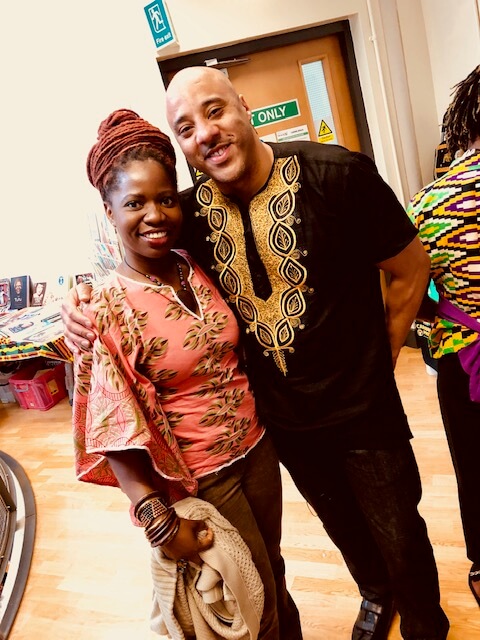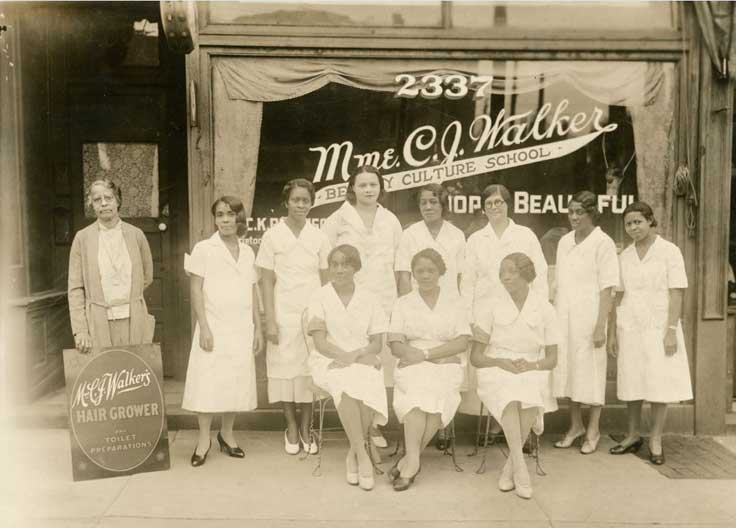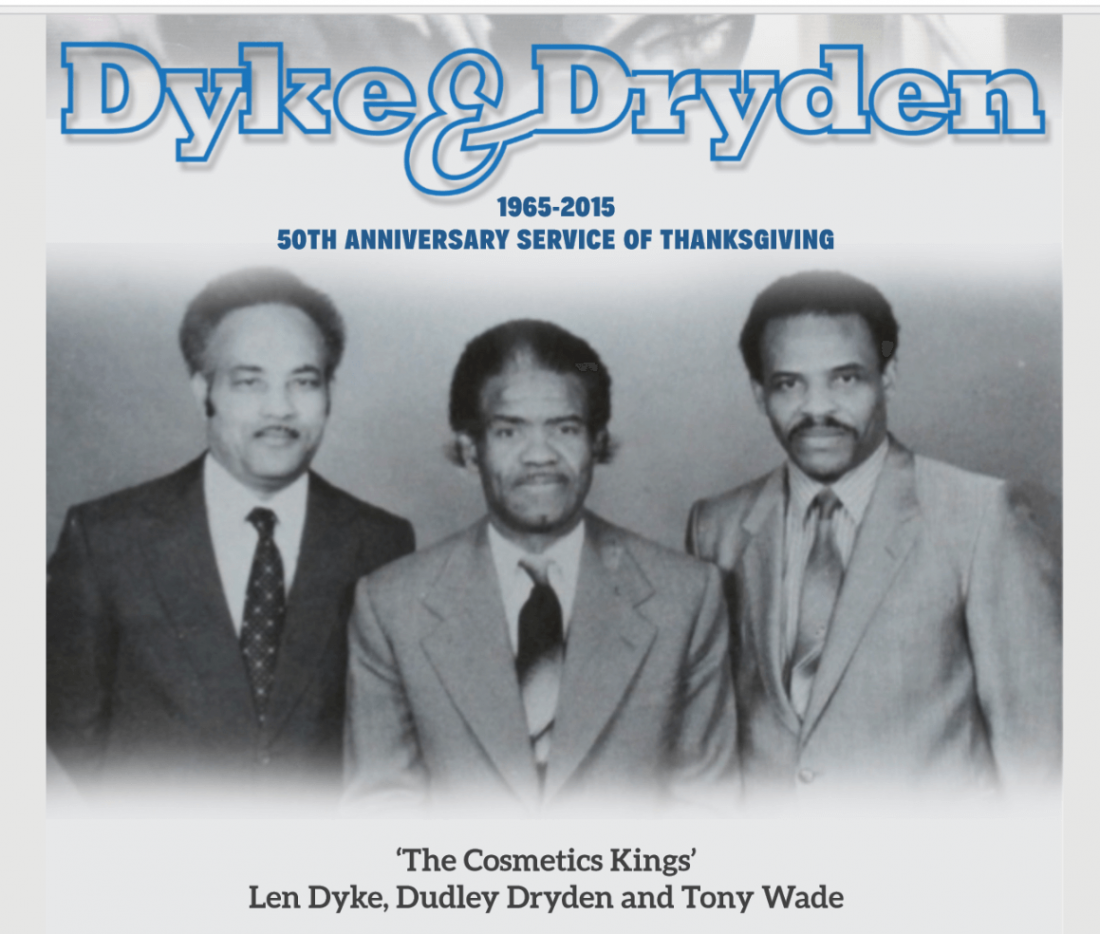Founder of Hair Care Revolution UK, Ovi King shares his thoughts on the past, present and future of Afro hair and beauty and why its future lies in advancing technology.

From the beginning of the 20th century, early entrepreneurs have endeavoured to meet the needs of Black hair and skin care. The race to find the best ways to look after our hair and make our skin beautiful and radiant has no finish line. The Fenty Beauty effect caused major ripples in the highly profitable industry and caused a lot of bigger brands to take note. Even so, the Black community is still a vastly underserviced sector of the global cosmetics market. However, a new brigade of Black-owned brands are rolling up their sleeves and making the link between Afro beauty products, entrepreneurship and technology.
I cannot talk about the future without first adding some context with the past…
Ancient History
Sarah Breedlove, better known as Madam C. J. Walker, was an African-American entrepreneur, philanthropist, and a political and social activist. In recent times, the name Madame C.J. walker has been propelled from obscurity to become the moniker of a true pioneer and role model. This is due to the recent heightened interest in the achievements of black pioneers and entrepreneurs. For those who are not aware of the achievements of this phenomenal figure, Madam C.J. Walker created her own brand of hair care for African Americans and people of African descent in the USA at a time when slavery was still a recent and painful memory. A time when many Black people could neither read nor write, let alone start a business. Long before the likes of Mary Kay, Madame C.J. Walker created and pioneered the business model that empowered women to sell her products across the country. Her model was simple; collect information on recipes and ingredients from various sources that were known to have a positive effect on afro textured hair, create the products and test them out before making them available to be sold via a vast network. Her efforts reportedly helped many women gain self-confidence and self-esteem.

Another pioneer, Annie Malone, whose name is arguably less well known than Madame C.J. Walker, developed her own range of afro hair products and cosmetics. In fact, she was already established before Madame C.J. Walker came along, reportedly employing her as one of her selling agents. Credited as one of the first African American women to become a millionaire, while at school she is known to have a particular interest in chemistry and eventually opened her own beauty college.
“I’m heartened by the many Black-owned independent beauty entrepreneurs who are creating some truly amazing products to meet the needs of the community, just like great Madame C.J. Walker and Annie Malone did 100 years ago and Dyke & Dryden, 50 years ago. The spirit of entrepreneurship and solving problems is alive and well in 2019!”
Annie Malone followed through with her interest and while experimenting with hair and different hair-care products, developed and manufactured her own line of non-damaging hair straighteners, special oils, and hair-stimulant products for African-American women.
These two ladies are true inspirations and their stories ring remarkably familiar in today’s afro beauty landscape. This is because it is pretty much the same process that is being used to create afro hair and skin products by Black cosmetic entrepreneurs around the world today, one hundred years after the death of Madame C.J. Walker in 1919.
Recent history
Dyke and Dryden and the Soul Glo millionaires in the USA
The 70s through to the early 90s were the middle history in the Afro hair and beauty space which saw an explosion of creativity. This time period led to the innovation and exponential global success and mega fortunes of a group of entrepreneurs. I have coined this period of history as the “Soul Glo era” due to its very realistic depiction in the classic Coming to America movie starring Eddie Murphy. I’m sure I’m not the only one who has seen it more than 100 times but it was only recently that I joined the dots to the fictional “Soul Glo” family and the real life experiences of afro cosmetics legends like the Johnsons family, Cornel McBride of M&M Cosmetics and countless others from the USA.

Closer to home in the UK, an exciting new company called Dyke and Dryden, aka The Cosmetic Kings, initially based in Tottenham, north London, created a legacy in afro cosmetics that still remains. Have you ever wondered who set the foundation for the monopoly of afro hair shops now run by south Asian businessmen? Or the people who created the once legendary Afro Hair & Beauty Show? Dyke and Dryden created the blueprint behind much of the UK afro cosmetic industry that is in place today.
Present day
It would seem that since the early 00s we have lost our way within this industry. Innovation has slowed to not much more than a crawl. Ownership within the community of cosmetics is at an all-time low as the people who use afro beauty products are the least represented at every level of the supply chain, save for one or two exceptions. Within the space of 30 years, we have turned from ownership and dominance within this sector to passive bystanders being dictated to by those who make, but do not use afro beauty products.
While the current state of affairs is bleak and uninspiring, as always, there is a beacon of hope. That beacon of hope is the everlasting creativity and innovation that oozes effortlessly from melaninated brains. The community that uses these products create; they do not copy. They innovate, not imitate.
I’m heartened by the many Black-owned independent beauty entrepreneurs who are creating some truly amazing products to meet the needs of the community, just like great Madame C.J. Walker and Annie Malone did 100 years ago and Dyke & Dryden, 50 years ago. The spirit of entrepreneurship and solving problems is alive and well in 2019!
The efforts and energy put in by this new wave of afro beauty entrepreneurs from London to Glasgow is commendable, but in many cases is hardly different from what the very first pioneers were doing at the turn of the century. I believe that we need to keep on innovating to stay one step ahead of established manufacturers and distributors who have a vested interest in keeping us, the people who use these products at the bottom of the supply chain. So, which way forward?
A new unwritten Afro Cosmetic future lies in technology
Like every aspect of life, the future of afro beauty lies in technology. Whether we like it or not, technology is projected to disrupt and destroy the current status quo. As the founder of a brand that specializes in disrupting the afro hair and beauty industry, I am privy to some of the exciting advancements on the horizon.

the future of afro beauty lies in technology
I recently hosted Afro Hair Tech – Black to the future, an event that brought together experts in the beauty tech and science areas as well as entrepreneurs, product makers, techies and founders / employees of tech start-ups.
We concluded that the opportunities for new and exciting breakthroughs are not yet even being discussed let alone developed for the melanin rich hair market which covers people with African – Caribbean, Asian, Latin, Oriental and mixed heritage.
Over the coming months, I will be sharing some of the headline discussions and products within Afro beauty technology and look forward to this new phase and the exciting opportunities in the future… Watch this space!
Contributed by Ovi King, Founder of Hair Care Revolution UK












